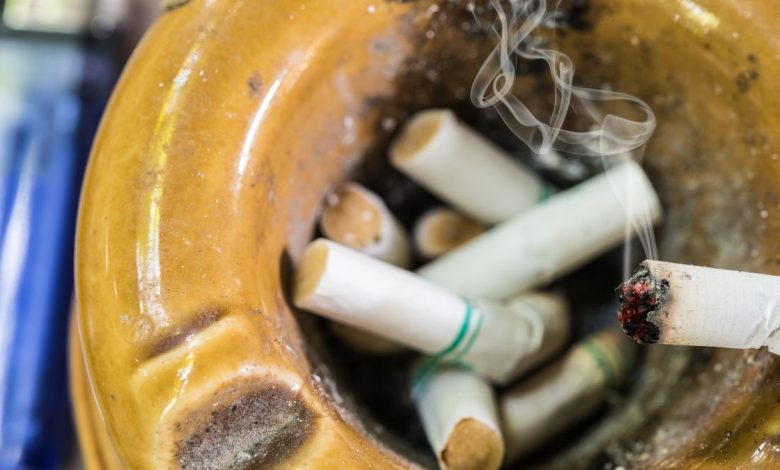New Smoking Laws Could Fuel Surge in Illicit Cigarette Trade

South Africa’s government is preparing to implement new smoking laws, but experts warn that these regulations could inadvertently boost the illicit cigarette trade. While the laws aim to reduce smoking rates and protect public health, they may have unintended consequences. What is the potential impact of the new smoking laws, and why could they fuel an already booming illicit cigarette trade in Gauteng and across South Africa?
Understanding the New Smoking Laws
The proposed Tobacco Products and Electronic Delivery Systems Control Bill seeks to tighten regulations on tobacco sales in South Africa. Key measures include the introduction of plain packaging for cigarettes, restrictions on tobacco advertising, and higher taxes on tobacco products. The primary goal is to reduce smoking rates and curb the harm caused by tobacco use.
However, these new measures are sparking concern within the tobacco industry, particularly regarding their potential to encourage illegal activity. Industry stakeholders are worried that stricter regulations may push smokers to purchase cheaper, unregulated cigarettes from illicit sources.
The Illicit Cigarette Trade in South Africa
South Africa has been grappling with a massive illicit cigarette trade for several years. According to reports, the illicit cigarette market now accounts for approximately 75% of the country’s total tobacco consumption. Three out of four cigarette packs sold in South Africa are smuggled or illegally produced, causing tax losses.
Learn more about how proposed smoking regulations might increase the black market, according to experts.
The illicit cigarette trade is not only a financial concern but also a public health risk. Counterfeit cigarettes are often unregulated and contain harmful substances that can have severe health consequences.
How New Smoking Laws May Worsen the Problem
Experts warn that the new smoking laws, although well-intentioned, could exacerbate the already widespread illicit cigarette trade. By increasing taxes and imposing stricter regulations on legitimate tobacco sales, these laws could drive more consumers to seek out cheaper alternatives in the black market.
As demand for low-cost cigarettes grows, illegal manufacturers and distributors will likely step up their operations. These illicit traders are often difficult to track, and their products are not subject to the same safety and quality standards as legal cigarettes.
The Economic Impact: Loss of Tax Revenue
The surge in illicit tobacco trade is already having a significant impact on South Africa’s economy. It is estimated that the country loses approximately R28 billion in tax revenue each year due to the widespread sale of illegal cigarettes. With the new smoking laws potentially driving more people toward illicit products, this revenue loss could increase, further straining the national budget.
Authorities have expressed concern that if illicit tobacco sales continue to rise, it could lead to a shortfall in government funding for essential services. This underscores the importance of addressing the root causes of the illicit cigarette trade while balancing public health priorities.
Discover how illegal cigarettes are impacting township spaza shops and what changes are needed.
Tobacco Industry’s Response: Calls for Balanced Regulation
Industry stakeholders, including major tobacco companies like British American Tobacco South Africa (BATSA), have voiced concerns that the new regulations will not be effective in curbing smoking rates. Instead, they argue, the laws will only punish legal businesses and create more opportunities for illegal traders to flourish.
Johny Moloto, Head of Corporate and Regulatory Affairs at BATSA, has pointed out that the government already has the tools and knowledge to tackle the illicit market, but enforcement remains a challenge. He argues that the proposed legislation fails to account for the practical realities of the illegal tobacco trade, which thrives due to the lack of stringent enforcement.
Public Health Concerns: A Double-Edged Sword
While the new smoking laws aim to reduce smoking-related diseases, they may unintentionally compromise public health efforts. Smokers who turn to illicit cigarettes are exposed to even greater risks, as these products are often of poor quality and may contain harmful chemicals.
Solutions: Strengthening Enforcement and Public Awareness
To effectively combat the rise of illicit tobacco, experts suggest that South African authorities must focus on improving enforcement measures and increasing public awareness about the dangers of illegal cigarettes. Some proposed solutions include:
- Enhanced Border Control: Strengthening border security to prevent the smuggling of cigarettes into the country.
- Retailer Compliance: Encouraging retailers to comply with regulations and avoid selling illicit products.
- Consumer Education: Running public awareness campaigns to educate citizens on the risks of purchasing counterfeit cigarettes.
Additionally, there is a call for policymakers to reconsider certain aspects of the proposed smoking laws. By aligning them with strategies to combat the illicit trade, the government can better balance public health goals with the need to protect revenue streams and reduce illegal activities.
Find out why cheap cigarettes continue to attract South Africa’s youth and how to address the issue.
Balancing Public Health and Regulation
South Africa’s new smoking laws may have noble intentions, but their potential to fuel the illicit cigarette trade cannot be ignored. As the country fights against rising tobacco-related diseases, it must also address the underlying issues driving the illegal market. This includes tightening enforcement, improving border controls, and ensuring that public health efforts do not unintentionally worsen the situation.
It’s clear that more comprehensive strategies are needed to tackle both tobacco consumption and the illicit cigarette trade. A balanced approach, combining effective regulation with stronger enforcement measures, is crucial for safeguarding public health and preserving government revenue.



